Open on Evenings & Holidays! Extended And Flexible Hours!
* DNA Testing for Immigration
* Paternity Testing
* Deceased Paternity
* Forensic Testing & Much More!
Open on Evenings & Holidays! Extended And Flexible Hours!
* DNA Testing for Immigration
* Paternity Testing
* Deceased Paternity
* Forensic Testing & Much More!
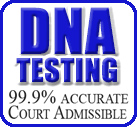
AB DNA Testing Services
Phone: 718-701-0292
We offer New York’s BEST AND MOST AFFORDABLE DNA TESTING with a full range of services to verify family relationships.
We specialize in the following types of DNA tests:
• Paternity • Maternity • Grand-parenting • Sibling Relationship • Biological Relationship Studies • Twin Studies • Deceased Paternity • Forensic Testing • Child Identity Testing • Family Tree and Genealogy Testing
* EVEN LOWER PRICE THAN HOME DNA KITS.
* NO HIDDEN COSTS – Collection kits, photography, and fingerprinting all included.
* 99.9% (OR GREATER) ACCURACY.
* FINAL RESULTS ARE PRESENTED IN A NOTARIZED DOCUMENT IN A CLEAR AND CONCISE FORM.
* ALL RESULTS ARE COURT ADMISSIBLE.
* OVER 15 YEARS EXPERIENCE.
* NO REFERRALS NECESSARY!
* FAST AND PAINLESS SAMPLE COLLECTIONS, USING BUCCAL (Mouth) SWABS.
* SPANISH, PORTUGUESE, FRENCH AND CREOLE SPOKEN.
* PLEASE SEE TRANSLATIONS OF OUR SERVICES IN: SPANISH, BENGALI, URDU, CHINESE AND NEPALESE!
Located In Woodside Queens, easily reachable from all boroughs (Queens, Manhattan, Brooklyn, Bronx and Staten Island), Westchester, Nassau and Suffolk.
We can also schedule DNA tests at our network of collection sites throughout New York city.
Call us. We have found that in many cases, our personalized service can overturn your denial. We will call the passport office or immigration dept. for you and plead your case over phone verbally.
90% of time they will revoke your denial, as long as you get the required information to them quickly.
AB DNA TESTING SERVICES
AB DNA Testing Services © |
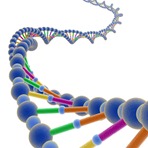 |
718-701-0292 We are open on evenings & holidays! |
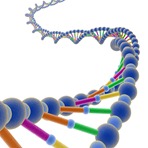 |
Legal Paternity Test: $349
NYS compliant testing only. NO HIDDEN COSTS OR EXTRA FEES.
We do not provide prenatal DNA testing in-house. If you need prenatal testing, we can refer you to a provider we’ve worked with previously:
Prenatal DNA Testing NYC.
AB DNA Testing Services offers a broad range of DNA testing options using certified, accredited laboratories and verified collection procedures.
In this post, we’ll explore how DNA testing supports immigration-related legal cases, what the process involves, and why it’s vital to choose the right provider. In today’s global world, families often span continents. For those navigating the complex legal landscape of immigration, DNA testing has become an essential and reliable method to verify biological relationships. Whether it’s for family reunification, visa applications, or citizenship petitions, immigration DNA testing plays a crucial role in ensuring legal processes move forward smoothly and truthfully.

Immigration DNA testing is a scientific method used to confirm familial relationships when required by immigration authorities. In cases where birth certificates or other documentation are missing, insufficient, or disputed, a DNA test can provide definitive proof of a biological relationship — such as parent-child, sibling, or grandparent-grandchild.
This type of testing is often required by:
In family-based immigration cases, the U.S. government requires proof of a biological relationship between a petitioner (usually a U.S. citizen or lawful permanent resident) and a beneficiary (the family member seeking entry). If documents alone are insufficient, DNA testing becomes the most accepted and definitive method to establish that relationship.
In cases where immigration petitions are denied due to lack of evidence, DNA testing can serve as the critical piece of evidence that reverses a decision. Many legal teams rely on certified DNA test results when preparing appeals or presenting additional evidence to immigration courts.
For refugees and individuals seeking asylum who have been separated from their families due to war, displacement, or crisis, DNA testing may be the only way to prove familial ties — often making the difference between being reunited or remaining apart.
Getting a DNA test for immigration purposes is straightforward when handled by a qualified provider. Here’s how the process typically works:
 Immigration isn’t the only area where DNA testing proves invaluable. At AB DNA Testing Services, we also provide accurate, court-admissible testing for:
Immigration isn’t the only area where DNA testing proves invaluable. At AB DNA Testing Services, we also provide accurate, court-admissible testing for:
With sensitive personal information at stake, privacy is a top priority. Always choose a DNA testing provider that offers:
At AB DNA Testing Services, we adhere to the highest standards of data protection and only share your results with the required legal parties.
When selecting a provider for immigration DNA testing, look for:
At AB DNA Testing Services ®, we specialize in immigration DNA testing that meets all USCIS, embassy, and consular requirements. Our expert team ensures your sample is collected professionally, handled securely, and delivered with precision.
Whether you’re sponsoring a child, parent, or sibling for a U.S. visa — or responding to a government request for evidence — we’re here to help you navigate the process with confidence and ease.
AB DNA Testing Services ®
718-701-0292
Call now to speak with an immigration DNA specialist and schedule your appointment. Let us help you bring your family together — legally, securely, and with peace of mind.
How does legal DNA testing work? Deoxyribonucleic acid (DNA) is a molecule that contains the genetic instructions for building and maintaining an organism. DNA is found in every cell of the body, and it is unique to each individual. This makes DNA a powerful tool for law enforcement, as it can be used to identify suspects and link them to crimes.
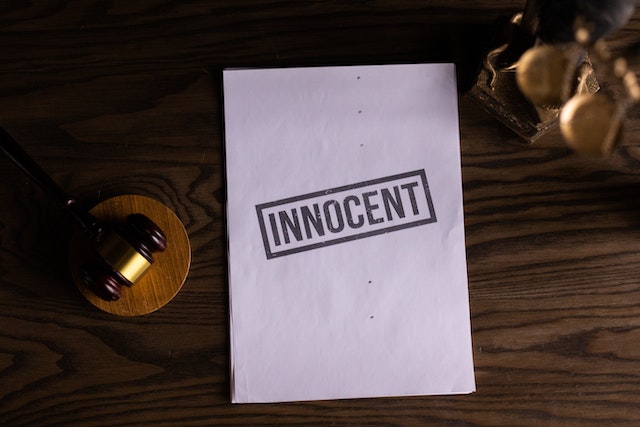
DNA testing works by comparing the DNA of a suspect to the DNA found at a crime scene. If the DNA matches, it provides strong evidence that the suspect was at the scene of the crime. DNA testing can also be used to exclude suspects from a crime, as no two people have the same DNA.
There are a variety of DNA tests that can be used in criminal investigations. Some of the most common types of tests include:
* STR testing: STR stands for short tandem repeats. STRs are short sequences of DNA that are repeated multiple times in a row. STR testing is a very accurate way to identify individuals, and it is the most common type of DNA test used in criminal investigations.
*Y-STR testing: Y-STR testing is a type of DNA testing that looks at the DNA found on the Y chromosome. The Y chromosome is passed down from father to son, so Y-STR testing can be used to identify male suspects.
* mtDNA testing: mtDNA stands for mitochondrial DNA. Mitochondrial DNA is passed down from mother to child, so mtDNA testing can be used to identify female suspects.
* CODIS testing: CODIS stands for Combined DNA Index System. CODIS is a database of DNA profiles from convicted offenders and crime scene evidence. CODIS is used to link crimes and identify suspects.
DNA testing is very effective in criminal investigations. In fact, DNA evidence has been used to solve thousands of crimes, including murders, rapes, and assaults. DNA evidence is also being used to exonerate people who have been wrongfully convicted of crimes.
The use of DNA testing in criminal investigations is legal in the United States. However, there are some restrictions on how DNA testing can be used. For example, DNA testing cannot be used to discriminate against people based on their race or ethnicity.
If you are interested in learning more about legal DNA testing, please contact AB DNA Testing Services ©. We are a leading provider of DNA testing services in NYC, and we can help you understand the role of DNA tests in criminal investigations and forensic science.
To learn more about AB DNA Testing Services © and to get started, please visit our website or call us today.
AB DNA Testing Services ©
63-11 Queens Boulevard
Woodside NY 11377
718-701-0292
Court admissible DNA is the result that you can present in court as a form of evidence. Juries and lawyers consider DNA to be a reliable source of evidence. Under certain circumstances, this type of evidence can be undeniable and an integral part of a case. Court admissible DNA should meet certain legal standards and procedures, as the court will not accept a test if it doesn’t fulfill specific legal requirements. Matters like parental dispute, child custody, and immigration often require court admissible DNA tests. You may also need court admissible DNA in more extreme matters like violent crimes.
DNA is a molecule that makes up the chromosome cells in our body. You can consider it as a building block for all living beings. It consists of nucleotides that bind together to form a genetic code, which is an essential part of who you who you are. What’s more, the DNA’s binding makes a double helix, ladder like structure. The genetic codes follow a similar pattern, which helps scientists identify certain characteristics, traits, physical appearance, and medical conditions of a person. Furthermore, DNA molecules bind with each other in the form of a strand.
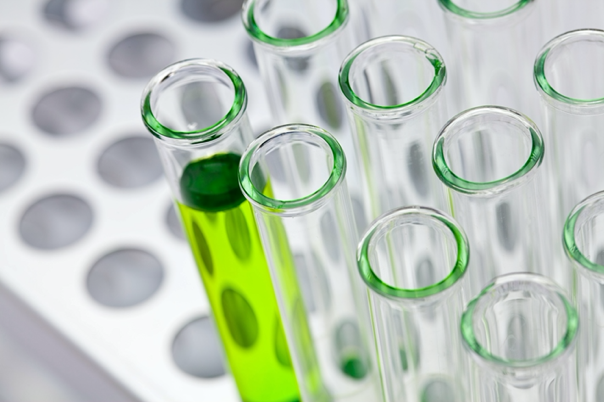
DNA evidence can be immensely helpful in court. In order to test DNA, you need a sample, which can be obtained quite easily . A sample can come from any part of the body. When it comes to crimes, even a criminal’s fingerprints can leave genetic information for forensic specialists to decode. In other cases that involve child custody or immigration, you can collect reliable samples. A doctor normally extracts cheek cells from a swab for accurate results.
The use of DNA in profiling individuals did not exist until the mid 1980’s. An English Scientist, Alec Jeffrey discovered that certain areas in the DNA molecule strand contain patterns that seem to repeat quite often. These repetitions are distinctive to each individual, except for identical twins who share the exact same DNA. Dr Jeffrey was then able to discover a test that measures the variations of these repeated patterns in order to identify individuals. This was the first technique that compared samples of the DNA in order to profile individuals. People knew it as Restriction Fragment Length Polymorphism. (RFLP)
This method is very accurate and reliable, but it requires a large amount of DNA samples. People now use Polymerase Chain Reaction method. (PCR), as it allows them requires a very small amount of DNA.
Many circumstances can affect the admissibility of DNA evidence in court. The courts demands immense accuracy when it comes to DNA methods. They can also ask for more than one method to ensure the DNA evidence is accurate. In some cases, judges may demand a scientific approach in order to mitigate the varying degrees of results. Mistakes like contamination, errors in the chain of custody, transport and storage can ultimately hamper the integrity of the DNA results. It could lead to the court dismissing DNA evidence because of its vagueness.
Maintaining admissibility of DNA evidence includes the following steps.
It’s very important to not tamper with the DNA evidence. Consider keeping it in a safe and secure place so it has no contact with any external sources that could contaminate it. This will make sure it comes in handy during trials. .
Documentation of the DNA evidence is very important. The lesser the people handle the evidence the better. A long chain of custody handling DNA evidence could lead to intentional or unintentional tampering. Therefore, it would be best to ensure that only a select few people are responsible for handling the evidence.
Many factors can make a paternity test court admissible. For example in cases of child custody, if the child gets really sick. Their treatment can require paternal DNA tests in order to find out the ethnic heritance of the parents, since this information can be crucial for treatment.
Other cases may include immigration processes where a person needs to travel and their parents already reside in the desired country. The court may require you to provide a DNA test if you wish to travel on an invitation. It will prove whether there is a biological relationship between you and the other party. The immigration office accepts DNA tests form labs accredited by the AABB.
The admissibility of DNA depends on whether you got the test done by an AABB accredited lab. If you are looking to get a 100% authentic DNA test that promises 99.9% accuracy, contact us at 718-701-0292, or visit our website at AB DNA testing lab.
Do you need court admissible DNA testing? A court may request a DNA test to prove your biological relationship with someone. It can give you benefits in a hearing. Court admissible DNA testing can help you in cases like parent’s separation, adoption, custody, birth certificates problems and legal issues. Even if the court doesn’t request you for DNA-based evidence, this test can help you solve many legal matters. To meet the court’s laws and policies regarding DNA, you need DNA results from AABB accredited laboratories. Most courts don’t accept samples from home-based DNA or other DNA labs.
The court can request for Admissible DNA tests in the following situations:
Court Admissible DNA tests should be performed and handled cautiously. The court can reject your test if they find any issue in it. The steps for the procedure are as follows.
An independent agent collects the DNA sample. The court instructs a professional to collect the DNA. They are independent and not allowed to take the side of either party. They first verify you or your child with the help of legal ID that they are taking a DNA sample of the right person.
Courts don’t accept home-based DNA tests. In fact, courts don’t even allow individuals to take DNA samples themselves and send them to laboratories on their own. But some jurisdictions allow people to take DNA samples at home in front of the professionals. If you are interested in taking your DNA yourself, check your court’s policy first.
After collecting the sample, the court emphasizes professionals to take the DNA sample to a laboratory and not to give it to a swing party. The swing party can exchange the samples with the wrong ones. This procedure, a third agent collects the sample then takes it to the lab for a test. This is taking a chain of custody. The court monitors this procedure, checking if the sample remains in the hands of the third party this whole period or not.
After transferring the sample to the lab, it undergoes tests. Confirm from your judge or counsel that they are recognizing the third party or testing institution from sample collecting to its testing. Also, the lab should be certified by AABB.
After the test is complete, you should submit the results for the ruling. If the lab sends you the results, submit the documentation provided. Also, before sending it to the court, take advice from your counsel either to give a copy or original results to the court.
Court matters should be treated cautiously. To avoid problems, you first need a counsel. Take help from your counsel before making any decisions. Also, choose a reputable laboratory to avoid DNA test problems.
AB DNA testing Lab in Queens, NY, provides all kinds of DNA testing services. Our DNA testing is 99% accurate and great proof you can provide to the court. We also help you if your petition is denied. We can call the passport office or immigration office and plead to overturn your denial. So, if you want to take our help, visit our website or call us at 718-701-0292.